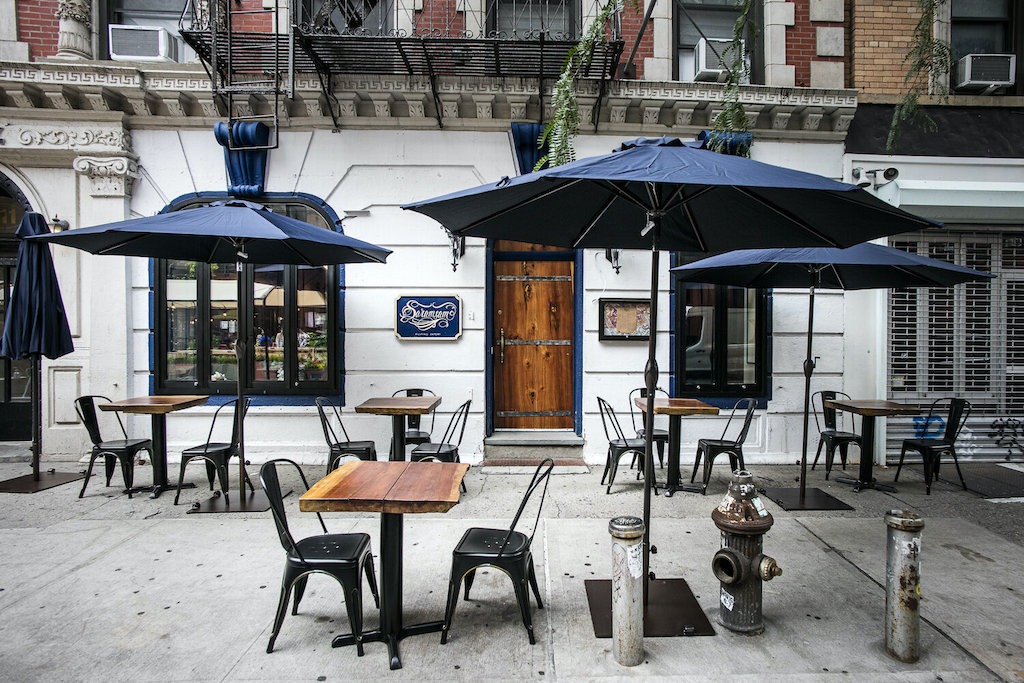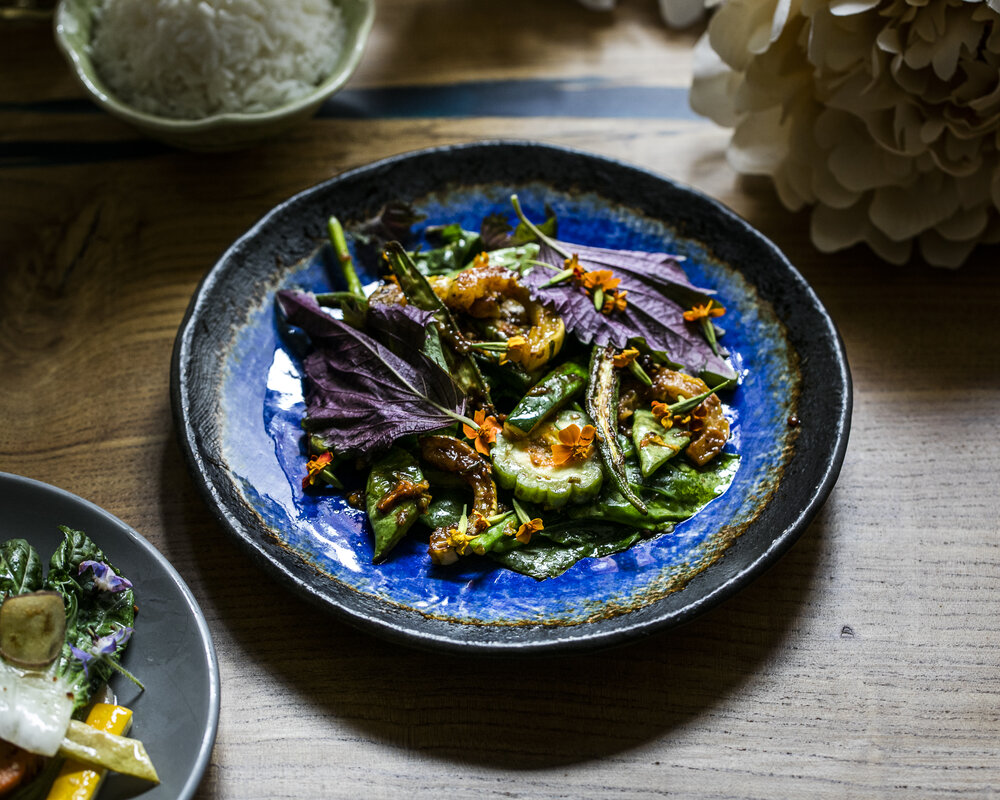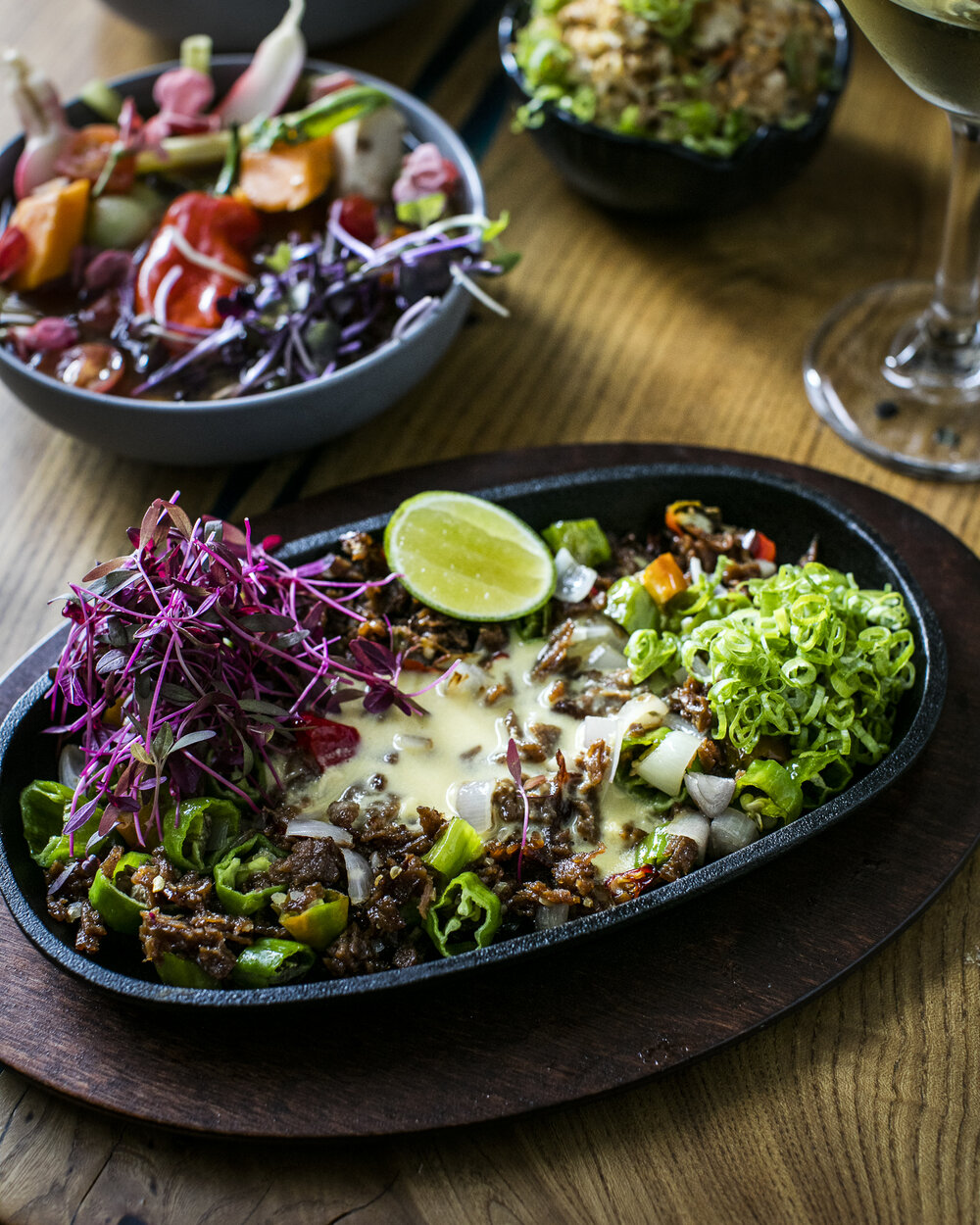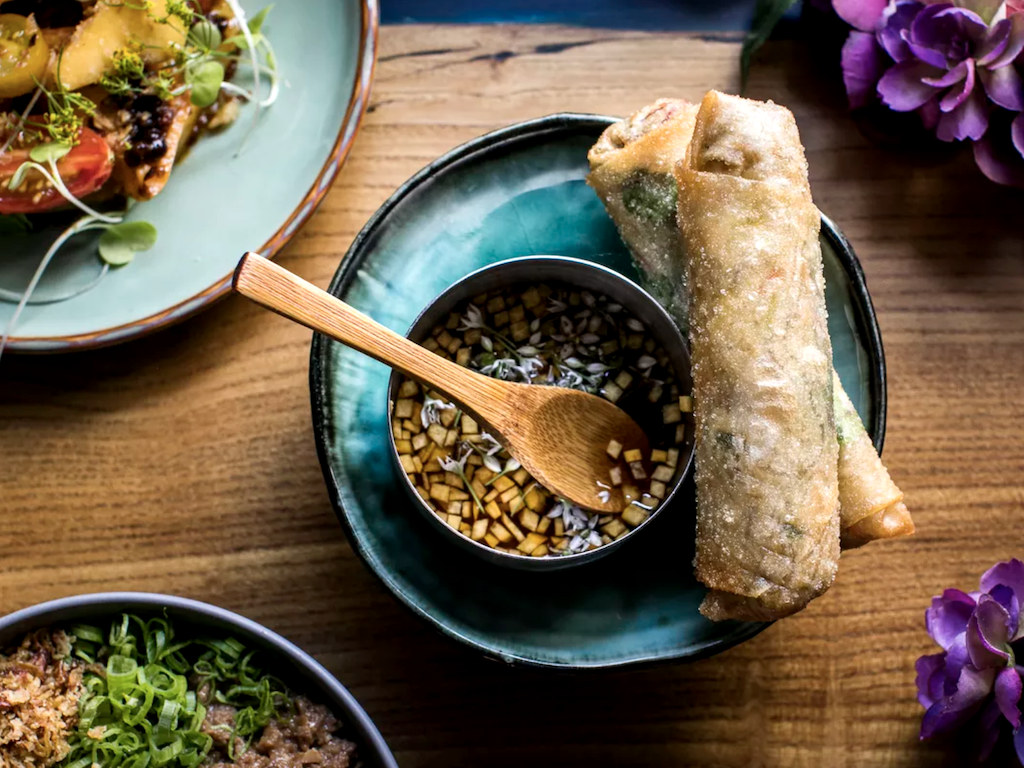3 Mins Read
Overthrow Hospitality has just opened the doors of Saramsam – the first vegan Filipino restaurant in the Big Apple. With Philippine-born chef Raj Abat leading the kitchen, Saramsam will celebrate traditional Filipino classics and authentic dishes, giving the often overshadowed cuisine the limelight it has long deserved with a plant-based twist.
Translating to “casual dining” in Ilocano, the third-most spoken language of the Philippines, Saramsam will give diners a taste of what Filipino cuisine is all about – warmth, community and nostalgic ingredients. But taking it up a notch, as part of Ravi DeRossi’s newly launched plant-based Overthrow Hospitality Group, the restaurant will serve Filipino dishes that are 100% vegan, making it the first to offer such an experience in New York City.
“We know it’s an ambitious undertaking. So to create the menu, Chef Raj looked directly to the flavours of his own childhood—the funk of fermented bagoong shrimp paste, the sour tamarind of sinigang soup,” the restaurant explains on its website.

The executive chef sought to recreate the familiar flavours of his native cuisine by creatively incorporating local Asian plant-based ingredients, from stinky tofu and miso and fermented beans.
True to the core of Filipino cooking, the restaurant’s menu is developed with communal dining in mind, with favourites such as plant-based sizzling sisig and an adobo of roasted mushrooms set to take diners on a journey through flavours unique to the country’s food scene. Other dishes include a meatless lumpia, the Philippines’ famous version of spring rolls made with fermented cane vinegar, as well as vegan sinigang, the locally popular sour soup reimagined with an orange and wine-tamarine based broth.

We know it’s an ambitious undertaking. So to create the menu, Chef Raj looked directly to the flavours of his own childhood—the funk of fermented bagoong shrimp paste, the sour tamarind of sinigang soup.
Saramsam
Saramsam will even offer a tasting menu called Kamayan, which traditionally means a selection of meat and seafood over rice that is served on banana leaves, but has been reinvented with only plant ingredients from Impossible Foods’ plant-based meat alternatives to vegetables that often appear in Filipino cuisine, like okra.
The future is plant-based. I’m betting my entire life and business and everything on that right now.
Ravi DeRossi, Founder of Overthrow Hospitality

While New York and the rest of the world is still battling the ongoing coronavirus pandemic, Overthrow Hospitality’s bold move comes as more diners are coupling the health and environmental impact of their food choices. Statistics in the U.S. have shown that plant-based meat sales have skyrocketed by as much as 280% amid the first wave of the pandemic. Surveys all over the world have also consistently indicated consumers’ intentions to reduce their meat intake significantly as a result of the crisis, which has exposed the dangers and vulnerabilities of the meat supply chain.
DeRossi believes that all the trends show that plant-based will shape the future of dining, and it’s the right time to launch the concept. “I’m personally betting on it,” DeRossi told Eater. “The future is plant-based. I’m betting my entire life and business and everything on that right now.”
All images courtesy of Saramsam., lead image LUMPIA: crunchy spring roll, iloko vinegar.




